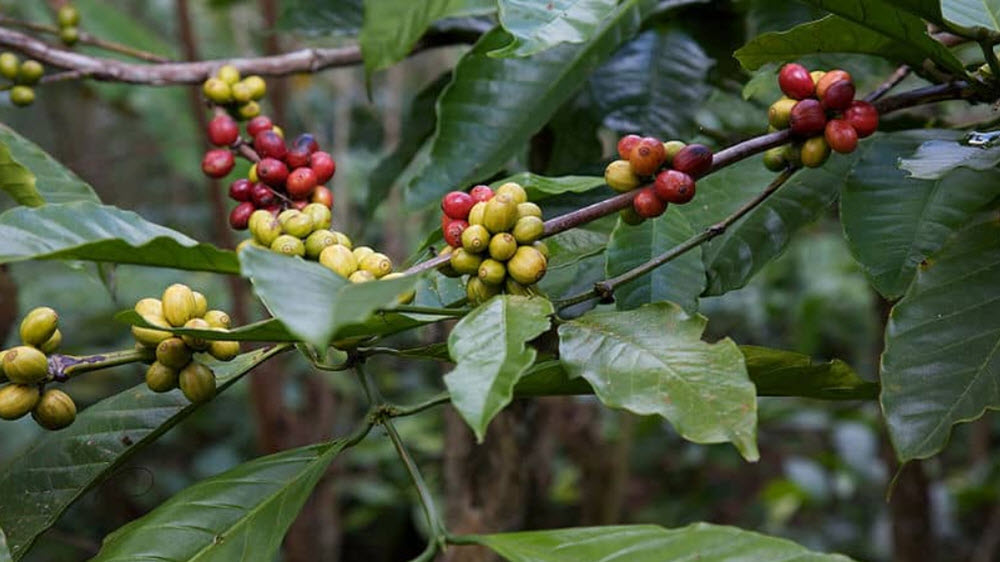Charrier coffee
Contents
Charrier coffee, also known as Coffea charrieriana, is a rare and unique species of coffee plant that stands out for a very specific reason: it is naturally caffeine-free. Discovered in Cameroon, West Africa, Charrier coffee is named after André Charrier, a French botanist specialising in coffee plant genetics. This discovery, made in the late 20th century, is significant because it represents the only known caffeine-free coffee plant species from Central Africa and one of the few naturally caffeine-free coffee species worldwide.

Characteristics
Coffea charrieriana is a small tree or shrub that produces coffee beans similar to those of more common coffee species like Coffea arabica and Coffea canephora (Robusta). However, unlike these widely cultivated species, Charrier coffee does not produce caffeine in its beans. This absence of caffeine occurs naturally, making it distinct from decaffeinated coffees, where caffeine is removed through a chemical process.
Significance
The discovery of Charrier coffee is particularly important for several reasons. Firstly, it offers a natural alternative to chemically decaffeinated coffee, appealing to consumers looking for a caffeine-free coffee option without processing to remove caffeine. Secondly, the plant has potential genetic value for coffee breeding programs aiming to develop new coffee varieties that are naturally low in caffeine or caffeine-free, potentially reducing the costs and environmental impact associated with the decaffeination process.
Challenges
Despite its unique properties and potential benefits, Charrier coffee is not widely available commercially. There are several challenges to its cultivation and distribution, including:
- Limited Geographic Range: Being native to a specific region in Cameroon, the plant’s natural habitat is limited, which may restrict its availability and scalability for commercial cultivation.
- Conservation Status: Like many other plant species native to specific ecological niches, Coffea charrieriana may face threats from habitat destruction and climate change, necessitating conservation efforts to ensure its survival.
- Development and Research: Further research and development are required to understand the best cultivation practices for Charrier coffee and to explore its commercial viability. Breeding programs may also look into incorporating its caffeine-free trait into more commonly grown coffee species.
Potential and Future Prospects
The interest in Charrier coffee reflects a growing consumer demand for natural, health-conscious alternatives to traditional caffeinated beverages. As research continues and cultivation techniques improve, there may be potential for Charrier coffee to become more widely available, offering coffee enthusiasts a unique and naturally caffeine-free option.
In conclusion, Charrier coffee represents an intriguing development in the world of coffee, with its natural absence of caffeine offering new possibilities for consumers and the coffee industry alike. As efforts to conserve, research, and potentially cultivate this rare species progress, it may one day become a staple for those seeking the taste of coffee without the effects of caffeine.

